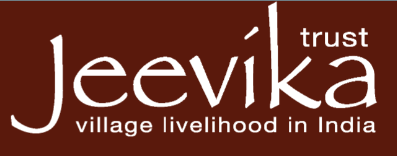Cause Area
Primary Sectors
Secondary Sectors
Geographies Served
Programs
-
Project SEED
StateStates
Tamil Nadu
Project SEED empowers Dalit women below the poverty line in North West Tamil Nadu to generate income, escape discrimination and domestic violence. Through organic farming, 140 women farmers and villagers use cost-effective, eco-friendly technologies, operate Seed Wealth Centres, produce organic fertilizers and pesticides, and trial cloth sanitary napkin production. The project also enhances school retention rates, provides evening tuition, conversational English, and forms Watch Dog Committees to combat various forms of exploitation.
-
Rural Women’s Livelihood Programme (RWLP)
StateStates
Tamil Nadu
Odisha
The Rural Women's Livelihood Programme (RWLP), implemented by five partner organisations, empowers over 1,500 women through income generation and micro-activities. With the formation of more than 300 Self-Help Groups, these efforts have generated over £200,000 in the past five years. This has improved household incomes, leading to enhanced nutrition, food security, health, hygiene, and self-sufficiency within the village economy. Additionally, Jeevika Trust-supported projects provide safe water, sanitation facilities, and assistance to families affected by HIV/AIDS. In total, nearly 100,000 villagers in over 100 villages across Tamil Nadu and Odisha have been impacted or currently benefit from these initiatives.
-
Project MNEP
District
Khordha
States
Odisha
The objective of Project MNEP is to enhance the capacities of a network consisting of 350 women beekeepers across 15 villages. Additionally, it aims to replicate these endeavours, establishing a financially sustainable and viable beekeeping industry within the Chandaka Forest of Odisha, India.
-
Project Narikuravar
StateStates
Tamil Nadu
The foundation collaborates with Annai Mary Foundation, 100 Narikuravar gypsy women and their families in Tamil Nadu's southern region. Having lived on the fringes of society for centuries, these gypsy people faced challenges due to historical rulings and Government bans. To address their needs, AMF educates them on health, nutrition, and hygiene, empowering them to produce their soap for better hygiene, cultivate vegetables and poultry for improved nutrition, and generate income through surplus produce.
-
Project SNAPS
District
Khordha
States
Odisha
Project SNAPS aims to empower women and girls in the Chandaka Forest Area of Odisha by promoting menstrual hygiene through awareness and training. This pilot initiative caters to the needs of 2,500 tribal women and adolescent girls in 25 villages, providing them with access to affordable and eco-friendly disposable sanitary napkins. Women in Self-Help Groups will produce and sell the napkins, generating income while addressing issues of reproductive health and hygiene. The project also focuses on enabling girls to stay in education by ensuring access to sanitary napkins in schools.
-
Project Pani
StateStates
Odisha
Project PANI equips individuals in remote villages with construction skills for rainwater conservation and ground recharge systems, ensuring sustainable access to safe water. The initiative includes rooftop water harvesting, sanitation facilities, and a solar energy system for 120 students in one school, as well as hand pumps and toilets for 100 families in two neighbouring villages. ECO Club members promote awareness of water, sanitation, hygiene, and environmental issues among students, while village committees ensure ongoing maintenance of facilities and address health and hygiene concerns.
Registration Details
-
CSR Form 1
Not Available
-
FCRA
Not Available
About
-
Since
1970
Impact
Over the course of 40 years, Jeevika Trust has exclusively focused on rural India, collaborating with 6 Indian NGO partners at the grassroots level, implementing 36 livelihood projects across 3 states since 2005, and positively impacting the lives of over 100,000 people through its ongoing initiatives.
Vision and Mission
Jeevika Trust's vision is an India without absolute poverty where all people have the opportunity to live with dignity. Its mission is to tackle the roots of poverty in India by revitalizing rural communities, promoting inclusive development, and creating appropriate knowledge.
Political & Religious Declarations
-
Political Affiliation
-
Religious Affiliation
Location
-
Offices in Cities
Other Details
-
Type
Non-profit
-
Sub Type
Trust
Website
Technology Adoption
-
SOC 2 Compliant
No
-
Financial Management
-
Beneficiary Management

